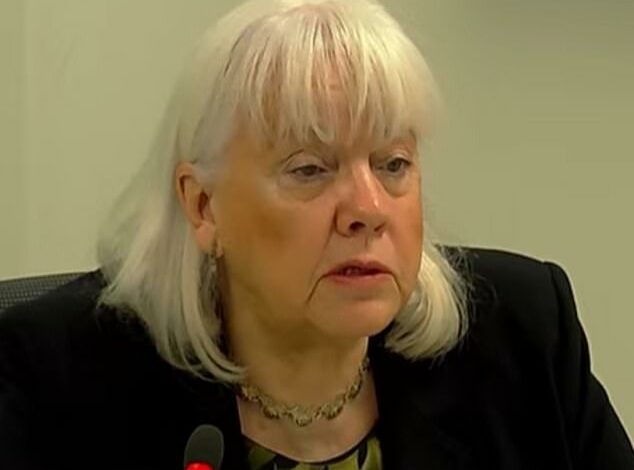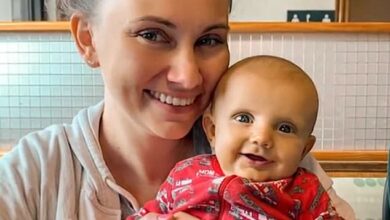‘Do you really want to end your career this way?’ – investigation into what boss told NHS whistleblower



A senior doctor who raised concerns after a deadly microbe was found in the air of a super hospital before it had even opened was asked if she really wanted to “end” her career, a survey has found.
Dr Penelope Redding has made a series of shocking claims during the inquiry into Scottish hospitals. She said microbiologists at the troubled Queen Elizabeth University Hospital were warned their careers would be destroyed, while bosses urged staff not to whistleblow over concerns about the hospital’s safety.
She also said there was a culture of fear and bullying and that Jane Grant, chief executive of NHS Greater Glasgow and Clyde, tried to stop her whistleblowing.
The 73-year-old was involved in preliminary planning for the new hospital as a microbiologist and was one of several senior doctors who raised concerns about infection control at the facility.
In a shocking statement to the inquiry, she revealed that concerns about ventilation and other issues had been raised even before the building opened in 2015.

Dr Penelope Redding made a series of alarming claims during the Scottish Hospitals Inquiry
Dr Redding, who has now retired, said: ‘The results of the air samples taken at the new hospital as part of the commissioning process raised concerns.
‘The microbiologists found that only three air changes per hour took place during air sampling, while the standards required six air changes.
‘They had also isolated microorganisms, including Mucor, in the pediatric hematology/oncology department.’
The now-retired doctor said that despite complaints being reported through appropriate channels, there was “general concern that they were not being listened to”.
The inquiry was told that she had raised her concerns with the then Director of Diagnostics, Aileen McLennan, as that was the reporting line in place at the time.
But her written statement said: ‘Her response to me was whether I really ‘wanted to end my career this way.’

The investigation will investigate whether infections in patients at the £840 million Queen Elizabeth University Hospital in Glasgow are linked to problems with the building, ventilation and water supply.
Mrs McLennan should have reported more, Dr Redding said, but because she had ‘lost confidence in the system’ she continued to raise her concerns herself.
She said she had discussed the ventilation issues, highlighting air exchange and Mucor. She had been warned that Mucor had a “mortality rate of up to 85 percent in children.”
However, her concerns were dismissed, the mortality rate was questioned and it was said that the concerns about ventilation were just her opinion, even though she was not the only microbiologist with concerns.
The Edinburgh inquiry, led by Lord Brodie, is investigating whether infections in patients at the £840m campus are linked to problems with construction, ventilation and water supply.
The investigation was launched after a number of people died, including Milly Main, a 10-year-old cancer patient.
According to Dr Redding, there is a “deep-rooted culture of fear and bullying, where people are terrified to speak up” and management tells people “not to put things in writing”.
The retired physician gave an example. She said that when microbiology interns produced a document detailing their concerns after being prompted by her to write them down, a meeting was held and she overheard a senior physician say he was going to “destroy” their careers.
Dr Redding was one of the leading doctors to raise concerns about infection control at the hospital. He was told that Jane Grant, the hospital’s chief executive, had begged her not to go public with her concerns.
She told the inquiry: ‘I remember her specifically saying to me that she was ‘urging’ me not to do it.’
When she insisted she would do so, she told the inquiry, she was called by a non-executive director who spent 45 minutes trying to persuade her not to do it and ‘repeatedly asked “what can we do” to stop me doing it’.
Dr Redding told the research: ‘The culture and perception within [the health board] At the time, the rule was that a whistleblower should be seen as a troublemaker who should be criticized for raising concerns and causing stress to patients and families.’
The investigation is still ongoing.




